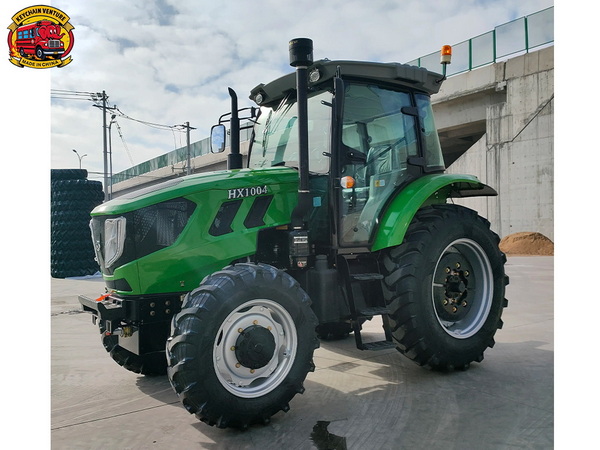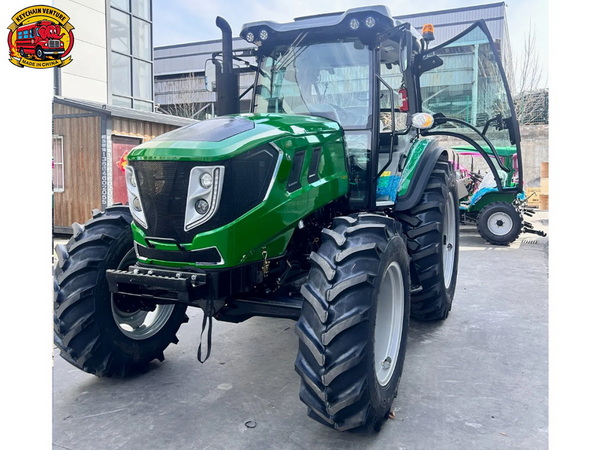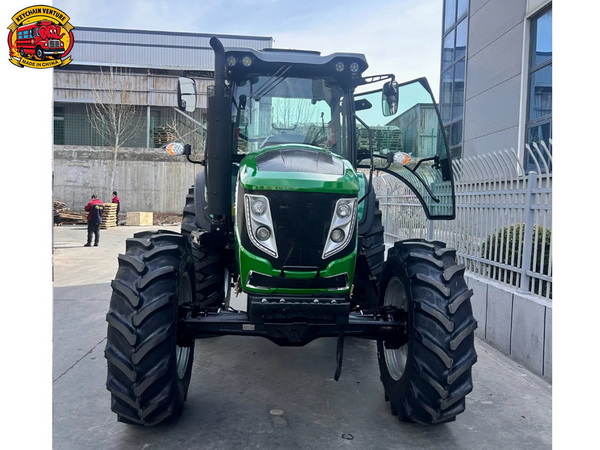Views: 222 Author: Amanda Publish Time: 2025-11-12 Origin: Site








Content Menu
● KeyChain Venture Co., Ltd.: Commercial Vehicle Excellence
● Regional Regulations for Used Tractor Titles
● The Bill of Sale: Your Essential Proof of Ownership
● Ownership Protection and Risk Mitigation
● International Import and Registration
● Digital Advances in Title and Registration
● Practical Guidance for Buyers
● Frequently Asked Questions (FAQ)
>> 1. Does every used tractor require a title?
>> 2. What documents are needed for ownership if a title isn't required?
>> 3. How can I verify a used tractor's ownership and lien status?
>> 4. What steps should I follow for importing a used tractor internationally?
>> 5. Is it possible to apply for a title for a tractor that doesn't have one?
KeyChain Venture Co., Ltd. is China's leading provider of commercial vehicle solutions, supporting clients domestically and internationally with state-of-the-art used tractors and heavy vehicles. As agricultural and transport sectors grow rapidly, buyers often encounter one fundamental question—should a used tractor come with a title? This article explores titling practices, legal documentation, international requirements, and ownership protection for used tractors, delivering practical guidance and expert insights for every buyer.

Headquartered in Chongqing, KeyChain Venture Co., Ltd. supplies high-performance tractors and commercial vehicles globally, offering innovative solutions for changing client needs. The company combines advanced engineering, rigorous quality control, and global logistics, delivering agricultural equipment suited to diverse terrains and regulatory challenges. By collaborating with local agencies and international buyers, KeyChain Venture ensures compliance, transparency, and seamless procurement experiences.
A title serves as an official document proving legal ownership of a vehicle. While cars, trucks, and motorcycles almost always require a title for sale and transfer, tractors are typically treated differently. This is due to their classification as farm equipment or off-road vehicles in many jurisdictions, which means titling regulations can vary widely depending on usage, region, and whether the tractor is part of commercial operations.[5]
- Farm tractors: Titles are rarely issued for tractors used exclusively on private property; a bill of sale or equipment registration suffices.
- Commercial and road tractors: Tractors utilized for construction, hauling, or operated on public roads must typically be registered and titled.
- State variation: States like Louisiana and California consider tractor titling optional, especially for agricultural models. Road use or commercial activity, however, may require mandatory titling.[2][5]
- European Union: Countries such as Denmark, Spain, Greece, and Poland enforce strict registration standards and encourage titling for both ownership and road compliance. Registration promotes safety and tax regulations.[3]
- Developing markets: From Jordan to Morocco and parts of Asia, import and dealer standards vary. Most targeted regulations emphasize registration rather than titling, with proof of ownership being key to facilitate trade, warranty, and resale.[3]
- Other countries: In some nations, tractors must be registered if used on public roads; otherwise, a bill of sale or proof of purchase documents is sufficient.[4][5]
For most used tractor transactions, buyers and sellers rely on a bill of sale:
- Details: Must capture make, model, year, serial number, price, and the identities of both parties.
- Notarization: While not universally required, adds an extra layer of authenticity.
- Serial numbers: Including tractor VIN or serial number bolsters the bill of sale for legal and insurance purposes.
The bill of sale acts as your shield against disputes, theft, or future regulatory questions. Always retain copies and ensure both parties sign the document.
Certain circumstances heighten the need for a title:
- Commercial use: If your tractor will be used for business on public roads—such as hauling freight—a formal title is likely required to comply with local motor vehicle laws.[5]
- Road legality: Licensing, registration, and insurance for tractors operating on highways typically require proof of ownership and titling.
- High-value or financed tractors: Financial institutions often require a title when financing tractors, ensuring they have collateral.
- Import/export: International transactions necessitate documentation for customs clearance, safety inspection, and compliance with local import laws.

Without a title, buyers should be proactive:
- Verify seller's legitimacy: Confirm tractor ownership, check for liens, and validate the seller's identity.
- Confirm serial numbers: Ensure tractor identification numbers match documentation.
- Search for liens or unpaid loans: Use official databases or request evidence from sellers to ensure tractor is free of debt.
Consult KeyChain Venture Co., Ltd. or local vehicle authorities for documentation assistance and transaction security.
Buying or selling a used tractor across borders requires compliance with:
- Customs clearance protocols
- Safety and emission certifications
- Registration or titling per destination country requirements
- Owner verification and transfer procedures
KeyChain Venture's logistics expertise streamlines imports and exports, assisting with obtaining necessary paperwork and meeting local standards.
- VIN technology: Modern tractors feature detailed VINs, allowing digital verification and tracking of ownership, maintenance, and transaction records.
- Online title search: Some regions offer online systems to check title status, lien existence, and vehicle history, which simplifies buying and selling.
- Request the bill of sale: Always get a signed, detailed bill of sale from the seller.
- Check for mandatory documents: If the region requires a title or registration, ensure all paperwork is present.
- Consult authorities: When uncertain, reach out to local DMV or motor vehicle agencies to verify requirements.
- Retain documentation: Keep all purchase paperwork for future resale or regulatory compliance.
In summary, most used tractors do not require a title unless they are operated commercially or on public roads, yet documentation like a bill of sale, registration, and verification of serial numbers are crucial for safe, legal ownership. KeyChain Venture Co., Ltd. leads with reliable industry guidance to ensure compliant, secure, and effective transactions for clients worldwide. Buyers should always consult local laws, confirm documentation, and prioritize due diligence for each purchase.

No, most agricultural tractors do not need a title, except when operated on public roads or for commercial purposes. Local regulations and the tractor's intended use determine title requirements.[2][5]
A bill of sale with the tractor's serial number and other details acts as the primary ownership proof. Equipment registration or dealer certificates may also be used, depending on local laws.[5]
Check with regional vehicle authorities using the tractor's VIN or serial number, inspect the seller's paperwork, and request confirmation that the vehicle is free of liens or unpaid loans.[5]
Prepare customs documentation, obtain proof of ownership, meet safety and emission standards, and consult with destination country officials about registration or titling. KeyChain Venture Co., Ltd. supports buyers through every step.[5]
Many states and countries allow applying for an optional title; this involves providing ownership documents, tractor details, passing inspections, and paying applicable fees.[5]
[1](https://press.mantruckandbus.com/corporate/different-countries--different-regulations/)
[2](https://tractoraddict.com/do-farm-tractors-have-titles/)
[3](https://thedocs.worldbank.org/en/doc/425681534213085783-0050022018/render/EBA16Machinery.pdf)
[4](https://forums.yesterdaystractors.com/threads/tractor-title.1339279/)
[5](https://www.keychainventure.com/does-a-tractor-have-a-title.html)
[6](https://www.youtube.com/watch?v=SyeJwAgXL8U)
[7](https://ideas.repec.org/a/wly/ajagec/v104y2022i4p1512-1539.html)
[8](https://www.international.com/our-company)
[9](https://cema-agri.org/market-trends/32-market-data/1092-european-tractor-registrations-at-10-year-low-in-2024)
[10](https://www.tractoroftheyear.org/winners/)